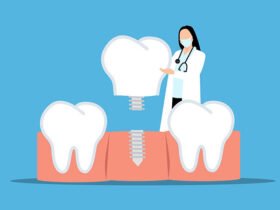Attention deficit hyperactivity disorder (ADHD) is a complex neurodevelopmental condition that affects approximately 6.1 million children and about 4.4% of adults in the United States. While most people associate ADHD with symptoms like difficulty focusing, hyperactivity, and impulsivity, there’s a lesser-known but equally important aspect to consider: its profound impact on mental health.
As common a condition as it is, ADHD can have a far-reaching impact on a lot of areas of one’s life.
The Overlap Between ADHD and Mental Health Conditions
Research consistently shows that people with ADHD are more likely to experience co-occurring mental health conditions than the general population. In fact, studies indicate that approximately 60-80% of adults with ADHD have at least one additional mental health condition.
This isn’t coincidental but reflects the complex interplay between ADHD and various aspects of mental well-being.
Depression and ADHD
Depression occurs in individuals with ADHD at rates three times higher than in the general population. This connection stems from several factors:
- 1. Chronic stress from managing everyday challenges
- 2. Repeated experiences of perceived failure or setbacks
- 3. Neurochemical similarities between the two conditions
- 4. The emotional dysregulation that often accompanies ADHD
For many adults with ADHD, years of struggling with organization, time management, and social interactions—often without understanding why these challenges exist—can lead to feelings of inadequacy, frustration, and eventually, depression.
Anxiety Disorders
Anxiety disorders appear in nearly 50% of adults with ADHD. This high comorbidity rate can be attributed to:
- 1. Ongoing worries about forgetting important tasks
- 2. Social anxiety stemming from ADHD-related social difficulties
- 3. The mental strain of constantly trying to “keep up”
- 4. Difficulty managing everyday stressors due to executive function challenges
For many people with ADHD, anxiety isn’t just an occasional feeling but a constant companion, fueled by the unpredictability that ADHD symptoms can bring to daily life.
Other Common Co-occurring Conditions
Beyond depression and anxiety, individuals with ADHD often experience higher rates of:
- 1. Bipolar disorder (approximately 15-20% co-occurrence)
- 2. Substance use disorders (up to 40% in adults with ADHD)
- 3. Sleep disorders (affecting up to 75% of people with ADHD)
- 4. Obsessive-compulsive disorder (OCD)
Which Comes First?
The connection between ADHD and mental health isn’t simple. It works both ways. When you have ADHD, certain symptoms can directly lead to mental health struggles. Take emotional regulation for instance. Many people with ADHD find it tough to manage their emotions, which can make them more likely to develop mood disorders.
Think about the daily stress of living with ADHD, especially when you don’t have support. Constantly missing deadlines, having relationship problems, feeling like nobody gets you—that takes a real toll on your mental health over time.
There’s also evidence suggesting that ADHD and some mental health conditions might share the same biological roots. They could stem from similar genetic factors or brain differences. So sometimes it’s not that one causes the other; they might both come from the same source.
The Impact on Daily Life
Living with both ADHD and mental health issues creates real challenges.
At work or school, focusing becomes twice as hard when ADHD and anxiety or depression combine. In relationships, you might struggle to stay present and regulate emotions, leading to misunderstandings.
Perhaps worst of all, these ongoing difficulties can damage your self-worth, making you blame yourself instead of recognizing treatable conditions
Treatment Options
The good news is that effective treatment approaches exist, and awareness is growing about the need to address both ADHD and mental health simultaneously:
Comprehensive Assessment
Proper diagnosis is the crucial first step. This often requires evaluation by professionals who understand the overlap between ADHD and mental health conditions and can distinguish between similar-appearing symptoms. Many social workers, particularly those who have completed MSW programs in California and other states with strong mental health training components, are well-equipped to contribute to these comprehensive assessments or provide referrals to appropriate specialists.
Medication Choices
Treating both conditions requires careful medication planning. Some antidepressants work well with ADHD medications, while others might cause problems or interactions.
Effective Therapies
CBT, mindfulness, and skills training help manage both ADHD challenges and mental health symptoms. These provide practical tools while supporting emotional health.
Daily Habits Matter
Regular exercise, good sleep, proper nutrition, and stress management are essential for managing both conditions. These basic wellness practices can significantly reduce symptoms.
—
Perhaps the most important step forward is continuing to break the stigma surrounding both ADHD and mental health conditions. Understanding that these are real, biologically-based conditions—not character flaws or personal weaknesses—opens the door to proper support and treatment.
By recognizing and addressing the complex relationship between ADHD and mental health, we can help ensure that those affected receive the comprehensive care they need to thrive—not just survive—with these conditions.










